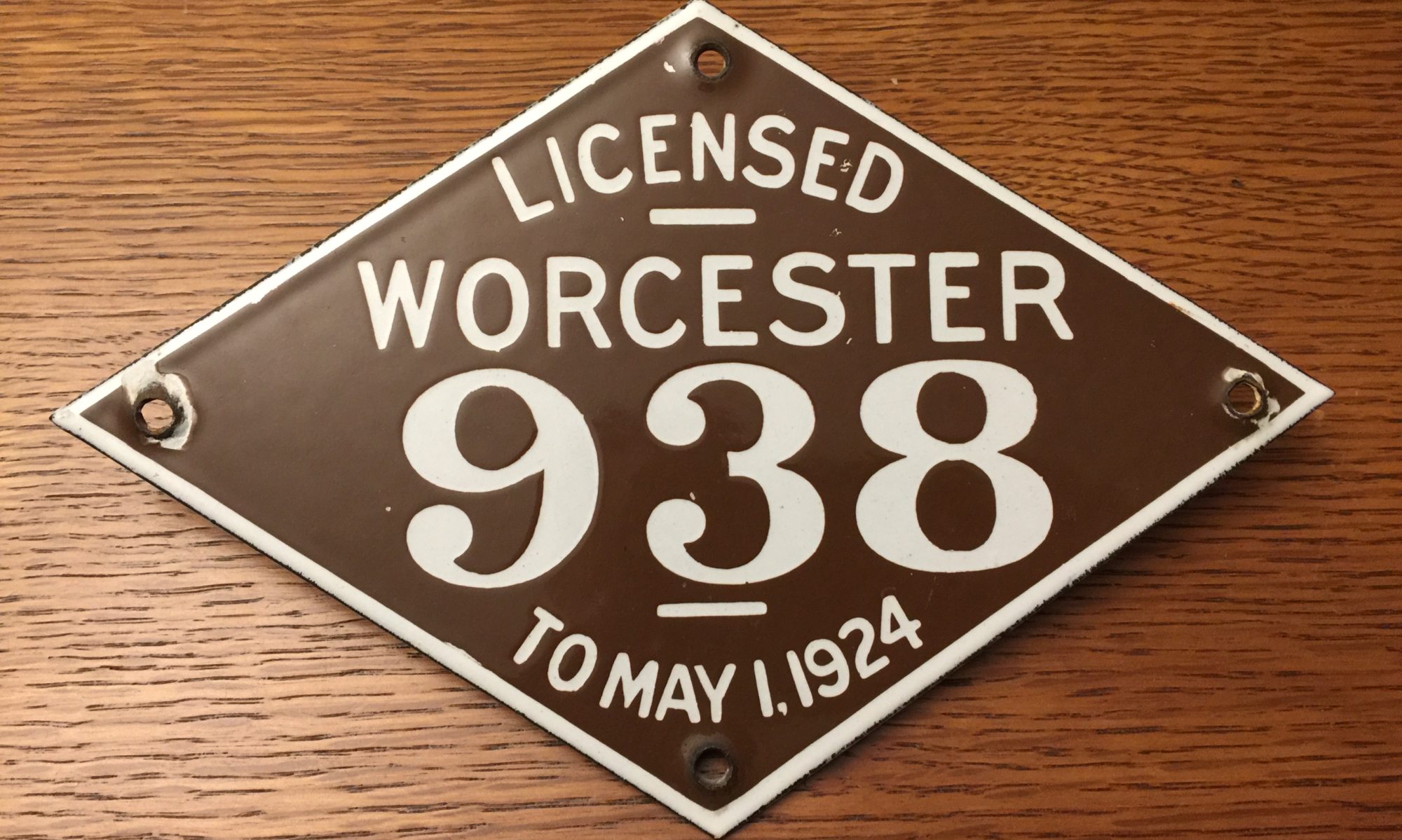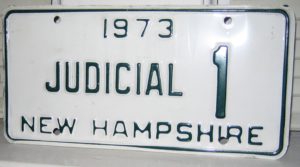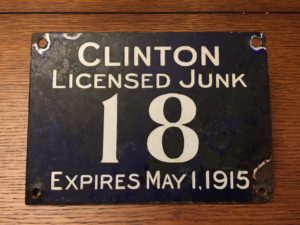Easily done in the garage. Within the house, not nearly so. As with all aspects of life, balance is the key.


Hosted by Alan Young
Easily done in the garage. Within the house, not nearly so. As with all aspects of life, balance is the key.

There was a day when just about every New England town had a small dairy, or several, at minimum. Before the days of pasteurization, fresh milk was delivered to homes on a daily or weekly basis. Many municipalities required dairies to register their fleet vehicles, and some provided permits displaying information such as registration number, year of validation, and town or city of issuance.
This 1929 porcelain milk plate is likely from Fall River, Mass, based on gathered information and anecdotal remembrances. This is the only one of this type in my collection, examples are known back to about 1912.

I found this Judicial no. 1 plate at the now-nearly-defunct Amherst, New Hampshire Antique Auto flea market in 2005. It’s a bit modern for my core interests, but seriously, just about any no. 1 plate really pops.
Usage and application unknown, but likely some high ranking member of the justice system within the state of New Hampshire.



One person’s trash is often another’s treasure. Go back a hundred years plus, and the same was true then, as well. The town of Clinton, Massachusetts issues porcelain license plates to local registrants for several different purposes, each with a unique type of porcelain plate. This is a junk license plate, likely issued to someone that had a business of harvesting scrap, or junk, within the town of Clinton. I found this screwed to a wall in a restaurant in Bolton, Mass in 2013. Luckily, I was able to strike a deal and bring it home. On a scarcity scale of 1 to 10, with ten being the scarcest, I’d give it a 10. it’s the only one known to collectors.
